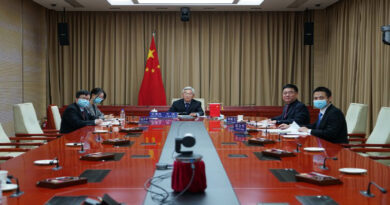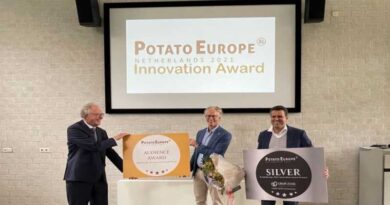Obituary: Professor John Hillman, former Chief Executive of the Scottish Crop Research Institute
“John made an immense contribution to the development of plant science and the international status of the Institute and deserves huge recognition for all he did”
25 January 2021, UK: The death has been announced of Professor John Hillman, one of the UK’s top scientists and former Director and Chief Executive of the Dundee-based Scottish Crop Research Institute (SCRI), a forerunner of the James Hutton Institute.
Also Read: Zhang Taolin Attends 13th Berlin Agriculture Ministers’ Conference via Video Link
Professor Hillman was born in Farnborough, Kent, and educated at Chislehurst and Sidcup Grammar School, and the University College of Wales at Aberystwyth, where he gained a BSc and PhD. He started his academic career in 1968 at the University of Nottingham, School of Agriculture, Sutton Bonington, with a particular interest in Physiology and Environmental Studies. He moved to the University of Glasgow in 1971, with successive appointments as Lecturer, Senior Lecturer, and Reader. He was appointed as Professor and Head of Botany at the university in 1982.
He took up the post of Director and Chief Executive of SCRI in 1986, in which position he served until his retirement in 2005. During this time, he was also a Visiting Professor at the Universities of Dundee, Edinburgh and Glasgow, and a Member of Court of the University of Abertay Dundee. In the same period, he was awarded an Honorary DSc by both the University of Strathclyde and Abertay Dundee University.
Among his peers, John Hillman was recognised as the ultimate polymath, with a wide range of research interests. These covered many new research technologies, which he embraced eagerly, including magnetic resonance, gas chromatography and mass spectrometry, through to the design of experiments to investigate the impact of the extra-earth environment on plant physiology.
His tenure saw the most dramatic adoption of molecular biology techniques in use at SCRI, which was matched by the creation of the most up to date laboratories and other facilities possible. This, and the employment of the brightest young scientists, resulted in an extraordinary level of scientific research and publication in learned journals, and the spin-out of many practical applications of this research, including the release of a wide range of new varieties with attributes of great value to the agriculture and horticulture industries.
Professor Hillman’s organisational talents and far-sightedness were always in great demand. He both chaired and served on several committees that had a significant role in identifying the future needs and direction of the agriculture and horticulture industries, and those who worked in them. Among these, he was Chair of the Agriculture, Natural Resources and Environment Sector Panel from 1994 – 1995, for the UK Technology Foresight Programme, and Chair of the Agriculture, Horticulture and Forestry Sector Panel from 1995 – 1997. He also served as a member of the board of the BioIndustry Association, chairman of the Industrial Biotechnology Group, member of the Scottish Higher Education Funding Council Committee for Research and Knowledge Transfer, member of the Scottish NFU Regulation Working Group, and member of the Angus, Dundee and Perth Employer Support Committee for Reservists.
During his nineteen years at SCRI, he founded and chaired Mylnefield Research Services Ltd. He also created the Mylnefield Trust and Mylnefield Holdings Limited and served as a director on both bodies’ boards. All of these were aimed at giving a strong commercial side to SCRI’s activities.
Amongst many prestigious awards, he received the British Potato Industry Award in 1999, International Potato Industry Award in 2000, and the Scottish Horticulture Medal from the Royal Caledonian Horticultural Society in 2003.
After retirement, Professor Hillman continued his links with SCRI and subsequently with the James Hutton Institute as an Honorary Research Fellow. He was also a trustee of the Scottish Society for Crop Research, a charity closely linked to the Institute that has a particular interest in disseminating research to the agriculture and horticulture industries.
He was married to Dr Sandra Hillman for 54 years and is survived by her and their two sons, Robert and Edmund.
Professor Colin Campbell, Chief Executive of the James Hutton Institute, commented: “John made an immense contribution to the development of plant science and the international status of the Institute and deserves huge recognition for all he did. He was a highly intelligent man and his annual essays on scientific progress, not just in plant science, were masterpieces that many people read to find out what the future might hold. He was a frequent visitor after retirement and remained active in our associated trusts and societies and made many new friends at the Institute.
“We will all miss him very much but are grateful for all he did for us. Our sympathies are with Sandy and all the family.”















